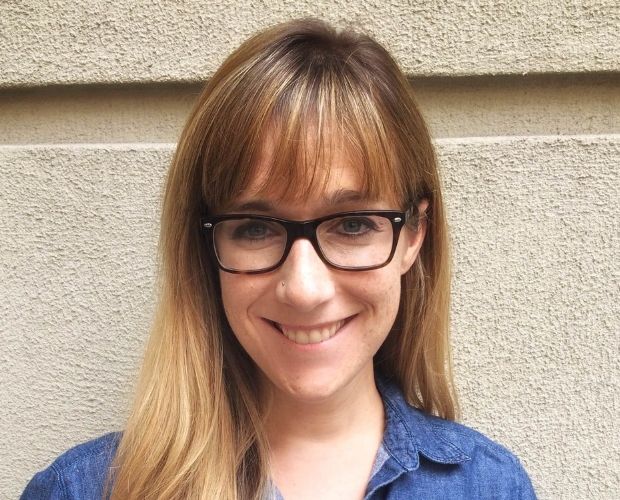Coordinating Doctors Without Borders’ COVID-19 Response in NYC

Over the past 12 years, Michelle Mays (SIS/MA '08) has worked around the world with Médecins Sans Frontières (MSF), better known in the US as Doctors Without Borders. But her latest placement is much closer to home—coordinating MSF’s COVID-19 response in New York City.
We spoke with Mays, an alumna of the Ethics, Peace, and Global Affairs program (now the Ethics, Peace, and Human Rights program), to learn more about her time at SIS, her career with MSF, and her work in New York City during the coronavirus pandemic.
Pursuing a Passion in International Affairs
Mays started her career in Baltimore, Maryland, as a pediatric nurse. She knew early on that she didn’t see herself staying in a more traditional nursing role. She also wanted to work internationally, which is one of the reasons she applied to SIS. She chose to pursue an MA through the EPHR program, which combines ethics and international studies and is offered jointly through SIS and CAS’s Department of Philosophy and Religion.
“I was very drawn to conflict studies and peace and conflict resolution,” says Mays. “The fact that the program combines philosophy and religion, which was also a big interest of mine, was the perfect marriage of a lot of my interests.”
After completing her master’s degree, Mays applied to work at MSF, an international medical humanitarian organization that is best known for its work in countries affected by conflict, epidemics, or disasters: “What does a nurse with an international affairs degree do? MSF felt like a natural landing point.”
Working With MSF
After graduating from SIS, Mays started at MSF as a nurse who managed various medical activities in the field. She then worked as a project coordinator for the next few years, overseeing all the activities and medical programming in a particular MSF site, including those in Jordan, the Central African Republic, and the Democratic Republic of the Congo (DRC). In Northern Nigeria and Ethiopia, she also worked as an MSF emergency coordinator.
She emphasizes the importance of being able to understand and adapt to many different contexts and cultures while working abroad—a skill she honed during her time at SIS: “Even though I was not in a peace and conflict role with MSF—it's a medical and humanitarian role—my skills and what I was able to learn in the [EPHR] program in terms of understanding conflict and working in very complex environments was enormously useful.”
Mays spent the last few years in MSF’s Amsterdam headquarters. There, she oversaw all of the international field staffing for one of the organization’s five operational centers, which decide when, where, and what medical care is needed and then run the operations in the field.
Her most recent international deployment was last year to the DRC, where Mays supported the organization’s Ebola response and represented MSF alongside the actors leading the response at the time, including the Ministry of Health and the World Health Organization.
Fighting the Spread of COVID-19 in New York City
After the coronavirus started to spread in the US, MSF began responding to the needs of the country’s vulnerable communities, including the homeless and housing insecure in New York City. Mays started her work as project coordinator in the city in March, utilizing the experience she gained abroad fighting past disease outbreaks and epidemics, including Ebola in the DRC and cholera in Haiti.
“The homeless situation in New York is not a good one outside of the pandemic setting,” says Mays. “But within the pandemic, there were a number of vulnerabilities that homeless people face normally that just became exacerbated and greatly increased.”
In New York City, MSF worked to improve infection prevention and control measures for at-risk groups by partnering with local organizations to offer showers, hygiene kits, handwashing stations, clothes, laundry vouchers, and other resources to those who do not have access to hygiene facilities.
Mays explains that MSF’s ability to work in rapidly shifting epidemic settings was useful in New York, where they needed to creatively and adaptively approach a lack of supplies and changing information about the novel coronavirus.
“People would be asking us questions on infection prevention and control, and we had to evolve with the science,” Mays says. “I don’t think we experience that very often. During most of the disease outbreaks that we’ve been in, we have a lot more of a foundation in the outbreak or the disease itself and how to prevent transmission and how to treat it.”
Though Mays says that most of MSF’s activities in New York have ended, they are still working to support a COVID-19 testing site in Brownsville, Brooklyn, a historically underserved community that is one of the New York City neighborhoods hit hardest by the coronavirus.
“Even though people are traveling less and moving less around the country, New York will always be vulnerable to these kinds of outbreaks,” says Mays. “We’re continuing to help this testing site, which is run by a health center in Brownsville, so that they’re in the best position to support that community moving forward.”

